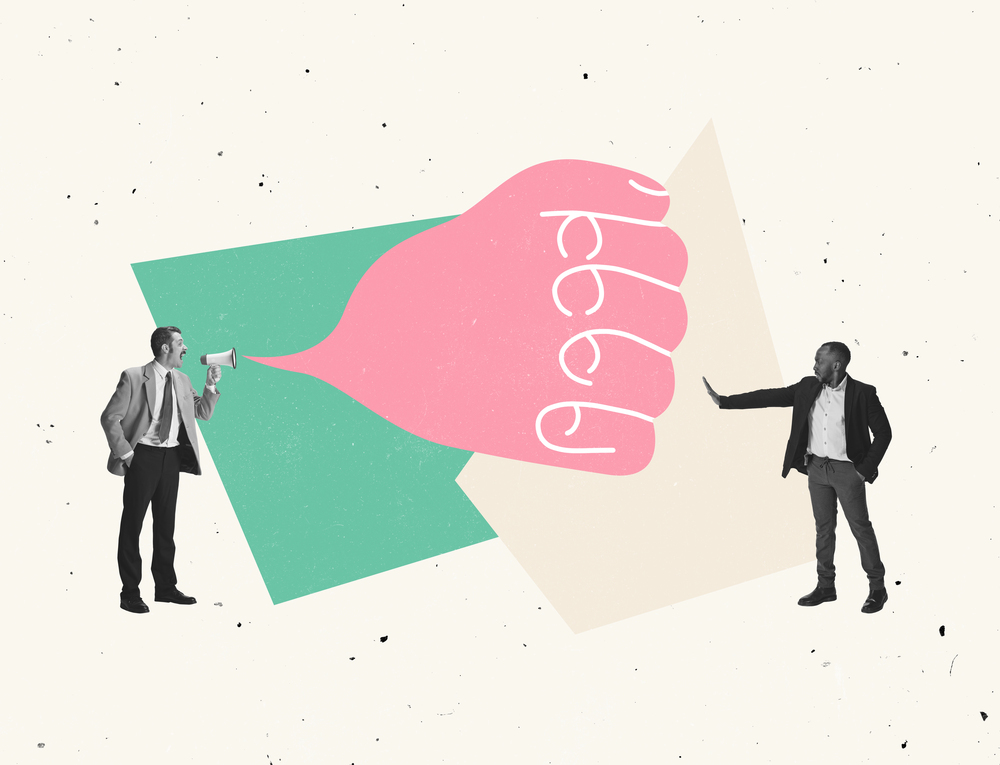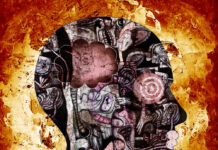A new paper in Psychoanalytic Psychology challenges how mental health professionals often interpret patient mistrust. Instead of seeing it as a symptom to be treated, the authors argue that mistrust can be a healthy and even necessary response to a world that has consistently denied a person’s experiences or perspective.
Psychologists Elias Jurist and Matthew Pizziferro focus on a specific kind of trust known as epistemic trust. This refers to the fundamental belief that the information we receive from others is reliable and that our own sense of reality is worth expressing. When that trust is broken, especially through trauma, discrimination, or dismissive clinical care, it can leave people feeling unheard, uncertain, and disconnected from themselves and the world around them.
“Mistrust can be a rational response to oppression,” they write, “not merely an indication of psychopathology.”
The article explores three interconnected concepts: epistemic trust, epistemic vigilance, and epistemic injustice. It highlights how credibility, power, and communication influence the therapeutic relationship. Drawing on insights from developmental psychology, mentalization theory, and philosophical discussions of injustice, the authors argue that many clients, particularly those from marginalized backgrounds, have valid reasons to be cautious.
This paper adds to concerns about how mental health systems often dismiss lived experience, showing that mistrust in clinical settings can reflect a history of being unheard or disbelieved. It presents epistemic trust as something shaped through relationships and experience, and often weakened by diagnostic authority and cultural exclusion.
















Do you also include a Spiritual context, for if this site anchors in justice with comes from the Arts, then is the practice missing a certain context in understanding the perspectives by which Trust is manifested?
Report comment
So what. Are you waiting for society to come to its senses? And what can a diagnosis from an insane society ever mean? The world is escalating insanity, confusion, and increasing human distance from the clear facts around us. This distance is called escape from what is, and that is the universal disease spreading from the West and to the South and East. So, in a world hurtling into insanity and confusion, what happens to a really sane and clear person? Do they become more or less sane? I suppose it depends on what you mean by sane. According to the standards of a destructive and diseased social system, conformity to that system is sanity, yet the system itself is insanity, so how can conformity to it be sanity? How can it be? Please tell me. So is sanity non-conformity? Non-comformity is obviously a mere mechanical reaction to conformity, but being free is not conformity or non-conformity. What is it, actually? It is the actual free to be itself. It is actuality. It is the fact. It is the truth. You and I are the fact and the truth and if we understood that, we would be free, and would see conformity for what it is. It is the denial of the actual, the fact, and the free. Probably we are so deeply conditioned by this society that we will never be free, and will die in conformity, insanity and confusion. And the sane person who saw all this would have expressed the distress of what they see and appeared to everyone else insane.
But then there are your highest hopes in the world. They are indifferent to hunger and the murder of innocent men, women and kids. They are indifferent to everything except their own self-interest, and will fain an interest in you out of self-interest. The human civilization is lost, is now diseased tissue consuming itself, but we are not civilization. We are ourselves, which is the fact, the truth, the actual. If you judge another human being individually or collectively you deny truth, actuality, and therefore yourself, and everyone you say you love. If you understand yourself there cannot be blame for yourself, or other people, but there is one sin against clarity. Not being honest. If you deceive others, you pervert their sense of reality, and we are all reality, so the lie or deception out of self-interest is the most misanthropic thing to do.
I know I write miserable and weird stuff but if I don’t vomit words out on hapless victims I end up getting into mischief and destruction of an even worse kind> If I go to heaven I will repay you. If I go to hell I will charge you rent for having ever existed in my word. And yes I have flies, but you are my mouldy walls.
Report comment
This is one of the most cogent analyses I have ever read. Wise, clear, insightful. It illustrates my my personal experiences and our country at large. No-one, you are someone to me
Report comment
Thank you sweet Kate! I am guessing you have Scottish ancestry. Not a hard guess though Ms McClintic!
Report comment
Perhaps if first one, then a couple of more, begin to learn to listen, then speak the poetics with questions, for there are reasons, not just rational, that can afford each of us healing and recovery! One of the oddities is most of the discourse on these pages has yet been able to convey the nature of a qualitative economy being developed by the social currency in contrast to the requisit monetary currency. How to learn the skills, is essential and voided in most encounters with the humans deemed professionals! Errors are a way into learning about the process of the oohs and awes!
Report comment
Clients’ mistrust and disbelief, far from being “symptoms” of hypothetical psychopathology, are an eminently rational, natural, and appropriate reaction to the wholly subjective opinions of would-be professionals whose field lacks universally applicable, verifiable criteria for assessing the efficacy of its diagnoses and treatments. The use of pretentious language (e.g. “epistemic injustice,” “mentalization theory”) in psychoanalytic journals does not negate this basic truth.
Report comment
I used to believe doctors and pastors were trustworthy, but the psych industries taught me to neither trust in, nor even automatically respect, any now working within the “two original educated professions.”
I agree, “Oftentimes in psychiatric settings, the voice of service-users is not heard ….” But the fact the psych professionals don’t listen to, or “not believed by doctor” what their clients say, is what allowed me to escape … once I was handed over all the BS and lies written into their medical records.
No one will ever believe their entire life is “a credible fictional story,” lunatics of the psych industries, who don’t know how to listen, nor treat others in a mutually respectful manner.
Report comment
Somewhere some how there was a turn a twist after 2000; I think in the perception of people working in the support fields. Not that the trusting of a persons story or an actual listening was all the time at all but there was a stream of if nothing else folks trying to listen and respect. When I started working in a psych unit my fellow social worker said listen because many times there is truth to what you may think of as irrational. You just don’t know so live in that don’t know state until the facts are seen.
That was not the case for many after that time and the no listening just increased and increased with just a pill as solution for people caught in a major human confluence of spinning spirals. The powers that be still refuse to acknowledge the massive metaphysical shudder we all are living through now. The former Surgeon Grnerals concerns regarding loneliness was kind and aware but he missed the idea it is a symptom even more that a problem in and of it self. Robert Putnam’s Blowing Alone 1999 ? described this trend in its earlier days.Dr Koop despite his Christian Evangelism did finally support AIDS healthcare and research. He saw the damage of cancer from smoking. Something. . And who is our Surgeon General now? Julius Richmond MD was involved in helping creating Head Start. Dr Blue way back in the past believed universal healthcare was essential.
The younger generation such a different take on things and perhaps they can gain power from the guild and either disengage them or get them to acknowledge harm done.
Report comment
Giant leap in psychology! Great article!!!
Report comment
Giant leap in psychology. But definitely a small step for mankind.
Report comment
Im being given 20mg olanzapine daily. Illegal papers fabricated almost a week after what I call a kidnapping orchestrated by a madman whom I wont mention. Ive noticed a pattern. The nurse that eventually has the job of administering the poison tries to start an argument, walks away by saying I am argumentative then follows me around continuing the argument that they say they dont want to have. Its hilarious if it wasnt for the fact I am getting very very tired.
Report comment
Why should clients automatically trust their providers? I always thought that was a pretty bizarre expectation. I worked with a 12-year-old girl who met adult men online and talked sexually with them, knowing nothing about them and assuming huge risks. One of her “goals” (which was given to her by the staff, not created by her or endorsed by her) was to “trust staff more.” At a treatment meeting, as her advocate, I objected strongly: her problem was trusting people TOO EASILY rather than distrusting them. I worked with her and the counselor to change the goal to “learn to evaluate which staff she can trust and to what degree” or something of that nature. Made a lot more sense.
I would often start my conversations with teen foster youth with something along the lines of, “You probably don’t trust me. I wouldn’t, either. You have no idea who I am or what I’m about. But I hope I can earn your trust in the days to come.” It was a much more effective approach, to normalize a lack of trust in adults for someone who grew up with adults s/he genuinely couldn’t trust! Telling them to “trust me” is a sure road to making things more difficult for yourself AND the client!
Report comment
Good point Steve. I myself worked with teenager clients in a substance use group and would often start out saying the obvious “yeah, it makes sense to not want to be here when you have a life to live”.
Report comment
Yup. It’s not rocket science!
Report comment